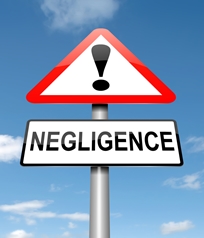
You could be off work for weeks, months, or longer if you were hurt in a slip and fall accident at a business or other property. In order to hold the property owner responsible for compensating you, you must prove that the owner’s negligence was the cause of your accident. This will be crucial if you want to convince the owner’s insurance company to settle your case for the amount you are entitled to.
When Is a Business or Other Property Owner Liable?
Just because you slipped and fell does not mean the owner of the property is automatically liable to compensate you. The reality is that true accidents happen when liquids are spilled, things fall on the ground, and floors become uneven. To a certain extent, this is a part of life. To have a valid claim, you must show the owner had a duty of care to you and that he breached this duty by his actions or inactions.
All business and property owners have a duty to take reasonable steps to ensure that their property is free of defects that would cause a person to slip and fall. You will need to show one of these scenarios occurred to prove the owner was negligent:
- The property owner or its employee knew of the dangerous condition, but did nothing to repair the problem.
- The property owner or its employee should have known of the dangerous condition because a reasonable person would have and would have repaired or removed the hazard. The key question in this determination is whether a reasonable person would have discovered the dangerous condition and if the property owner had sufficient time to rectify the problem before the slip and fall accident occurred.
- The property owner or its employee caused the dangerous condition.
How Do You Show the Property Owner Acted Unreasonably?
In most slip and fall cases, the accident victims are trying to show that the owner should have known about the condition because a reasonable person would have. No matter what scenario you are trying to prove to establish the owner’s negligence, the reasonableness of his actions will probably become an issue. Here are some questions to ask to determine whether the owner acted unreasonably:
- How long did the defect exist? The longer a problem existed, the more likely it is that you would be able to show the owner actions amounted to negligence. For example, if a spill was left on the floor for hours or longer, it is more likely the owner would be liable for your fall than if it had happened minutes before your accident.
- What daily cleaning does the owner engage in? You will want to look at how often the owner claims someone cleans and inspects the property. Whether the owner has any evidence to back up his claims is equally important.
- Why was an object on the floor? If you tripped on an object on the floor, was the object on the floor for a legitimate reason and did the reason exist at the time of your fall? Even if the object was on the floor for a purpose at one point, the owner could be liable if it was carelessly left there.
- Could the hazard have been moved to a safer place? Proving the object that caused your fall could have been moved to a safer location with little inconvenience to the property owner is one way to show the owner acted unreasonably.
- Could a warning have been posted? If a warning of the hazard could have been posted or a barrier erected around is, you can use this to show that the owner is responsible for your injuries by failing to take steps a reasonable person would have taken.
- Was there poor lightening? When poor or inadequate lighting exists, it makes it impossible for unsuspecting people to see potential hazards and is additional evidence that the property owner was negligent in causing your slip and fall.
Let Brauns Law Accident Injury Lawyers, PC Help You Prove Your Case
Proving that a property owner acted unreasonably can be challenging and is not something you should try to establish on your own. It requires a thorough investigation by an experienced premises liability attorney. If you or a loved one was injured in a slip and fall accident, take the next step by hiring an attorney to assist you. Call our firm today at 877-401-6689 to schedule a free, no-obligation consultation.
Related Links:














